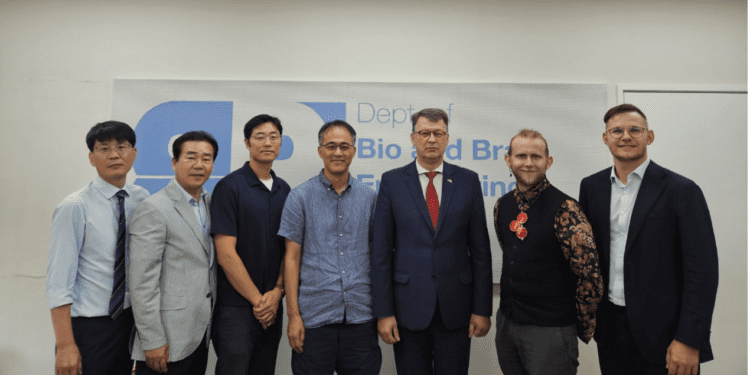The Korea Advanced Institute of Science and Technology (KAIST) has recently acquired South Korea’s first STYX high-throughput screening system, developed by Atrandi Biosciences. This new addition to KAIST’s research infrastructure promises to advance the institution’s capabilities in single-cell analysis and ultra high-throughput screening. As researchers prepare to explore the system’s full potential, the integration of STYX is expected to drive groundbreaking discoveries and enhance KAIST’s role in shaping the future of life sciences research.
Professor Sungmin Son in the Bio and Brain Engineering department at KAIST leads the first Korean team to leverage the advanced capabilities of the STYX platform to develop high-throughput technologies for the characterization of molecular and cellular properties through individual-level analysis. “STYX offers a seamless turn-key sorting solution while also allowing the flexibility to develop and integrate new functionalities. Its versatility makes STYX an invaluable asset for the protein engineering and the novel single-cell screening projects I have planned for my lab,” said Professor Son.

Atrandi Biosciences, founded in 2016, has emerged as an innovator in microfluidics tools. The company’s innovative product lineup includes the microfluidic platforms for ultra-high-throughput screening, and the semi-permeable capsule technology for single-cell whole genome sequencing. With over 100 hardware systems installed worldwide, predominantly across Europe and North America, the recent installation at KAIST represents a significant step in Atrandi’s strategic expansion into APAC.
“South Korea is rapidly establishing itself as a leading force in the global life sciences industry, distinguished by its exceptional growth and innovation. The country’s highly skilled talent pool, coupled with a robust network of research institutes, universities, and private companies, makes it one of the most significant and fastest-evolving markets in biotechnology. We are thrilled to support top-notch science in the region,” said Juozas Nainys, PhD, CEO at Atrandi Biosciences.
This development not only highlights the synergy between cutting-edge technology and scientific research but also reflects strengthening ties between Lithuania and South Korea, which is further exemplified by the forthcoming establishment of the South Korean embassy in Lithuania.
Ambassador of Lithuania to South Korea, Ricardas Slepavicius, remarked, “This is one of the examples of our strong commitment to working together in the biotech field, using our shared knowledge and skills to solve global problems and make new advancements in healthcare. I believe it will be a great example for future projects between Lithuania and South Korea, leading to even more successful collaborations.”
Keep tab on latest news in the Korean startup ecosystem & follow us on LinkedIN, Facebook, and Twitter for more exciting updates and insights.





